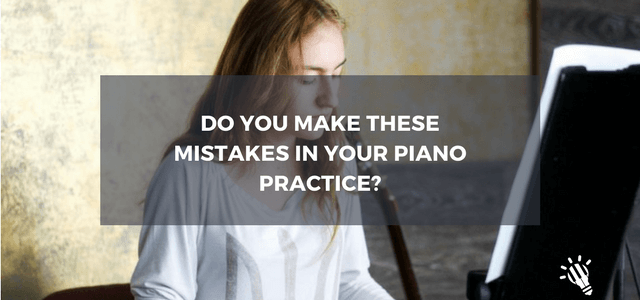
Practising music is something we need to learn how to do and until we do, we will probably make some mistakes. This article highlights some of the most common errors made in music practice and tells you how to amend them. The result will be that you can begin to progress on your instrument with less time and energy spent and more enjoyment gained.
If we are going to be honest, this is probably the most common error of our ways. The reason for not practicing boils down to the fact that it hasn’t become a priority. Most of the time, the reason practice hasn’t become a priority is because we haven’t learned to enjoy it. If you don’t believe me, think about some of the television shows you find time to watch.
Q. How do you find the time to watch them?
A. Because you enjoy them.
Solution:
With time and with some research and reflection, it is possible to work out what works for you in practice and how to make it enjoyable and challenging at the same time. It would benefit you to read blogs such as this one or mine, dedicated to helping you learn practice techniques so can enjoy your work and reap the rewards. Remember, whatever you put into music, you will most surely get out of it.
This is a habit many people can fall into with the result of little progress, followed by boredom.
Solution:
It is important to keep you practice Achievable, Challenging and Enjoyable (ACE). You can start by implementing goals for each practice session that will be achievable, for example, “this practice session I will do all my scales”. Then, do something challenging, for example, learn an exercise from a new resource, or continue learning a new piece of music. Finally, do something which is enjoyable, for example, listen to a piece of music, play along to backing music or run through a performance piece.
Following the same routine can also lead to us not wanting to practice.
Solution:
It’s important to be flexible in how you spend your time and also try to practice for the mood you are in. Sometimes you may feel like just doing technical exercises and that’s ok. Sometimes you may just want to run through all your performance pieces. As long as you cover all the areas you need to work on throughout the week, you’re doing well. Of course, this will depend on whether you are practicing for a performance or exam. The main point to remember is flexibility and mixing up your practice routine to keep it interesting. You may also want to take on some practice challenges set by yourself or your teacher.
I’m sure all of us have been guilty of this one at one stage or another.
This happens when we begin a piece of music, learn to play the first couple of bars really well but as we go on learning it, make mistakes and go back to the beginning of the piece (expecting those mistakes to have magically resolved themselves) until we hit a part where we make the same mistakes over again.
This method of practice is a very big waste of time and you’d be surprised at how quickly you can resolve those rough parts in a piece of music if you just spend 5 minutes of concentrated effort sorting them out.
Solution:
All you need to do is isolate the difficult passage, break it down, practice it slowly, then connect it to the previous bar. This type of practice should become a habit when learning any new piece and although it may seem like a slow process, it is actually a lot quicker than the other option. (Tim’s Article)
Yes, there is a certain amount of effort required to learn to play your instrument. If you are going to progress with your music and stick with it, you need to approach your practice with the right “head space”.
Solution:
This means do your practice when you have time to do it, try not to squash it in between events, making you feel pressed for time and therefore stressed. Start your practice with a breath focussed exercise to relax you and make sure you follow all the above hints about practicing for your mood, being flexible with your routine, balancing your work and play (ACE) and using varied resources.
Solution:
After your lessons, make sure you are clear on what you need to work on for the week. If you are not sure when you get home, there is nothing wrong with contacting your teacher and clarifying points with them. Your practice should cover areas of technique, creativity, rhythms, harmony and reading. If you cover all these, you are covering all the elements of music you need to work on.
Lisa Brown, June 2011
